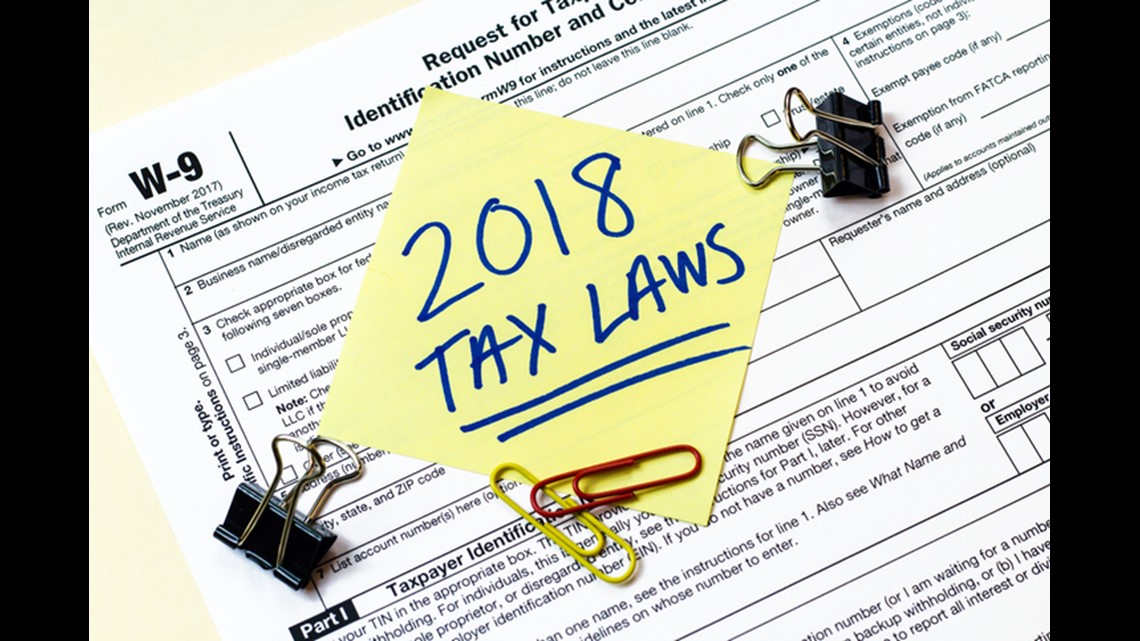I have a confession. It’s one many people probably have but rarely talk about: I don’t hate doing my taxes. Actually, I love it. Usually, it means a first-quarter cash windfall ever since I first filed back in 2011.
That was in Florida. I’d worked my first job the previous year in the Publix deli and had no idea what filing taxes was like. I used TurboTax and haven’t been audited so I guess I did OK.
Until this year, I’d heard about the dreaded ‘state income tax’ but never seen it. Florida’s tourism money allows it to forego that kind of tax (so the state legislature says). Some of my Southern friends even lamented they’d never move to the beautiful state of Colorado because of such a tax.
I wasn’t so scared. But I probably should have been. To any other transplant - especially one coming from a state without the terrifying state income tax - moving in the middle of the year means a huge pain in the neck come tax time.
Luckily for me, I stayed with the same company. My significant other - who’d held two jobs in Florida and worked two in Colorado last year - has had a much rougher go of figuring out her taxes (never mind chasing down four W-2s).
Since the tax site still has all my info back over half a decade, I used TurboTax again this year to file. And it wasn’t that bad despite all the doom and gloom. Of course, I notice the nominal 4.63 percent tax rate out of every paycheck - who wouldn’t? But it’s not the worst thing ever.
Granted, filing my taxes this year was the first time I was confronted with ‘special interest tax districts.’ After scouring the state’s site I still couldn’t really figure out what it meant, suffice to say I lived in the RTD and scientific and cultural facilities districts. Honestly, still figuring that one out.
The W-2 from my job had all the state tax info I needed, so the only real trouble I had was more with TurboTax and less with Colorado (thank goodness). TurboTax wanted me to file state income taxes for Florida after I did the Colorado ones. I decided to just blank the information - since there isn’t any - and move on.


But not everyone is comfortable using online services. In preparation for the final days of tax season, I reached out to 9NEWS financial expert Bruce Allen for some quick info. Allen runs Bruce G. Allen Investments LLC. here in Denver.
Quick note: while his firm only offers investment advice, he says he knows quite a bit about taxes; when his clients make investment choices, he needs to know how that might affect them come April 15 each year.
According to Google Trends, people are searching ‘tax reform’ more and more as tax season approaches. The biggest interest was when the tax reform package passed last year.
While everyone in the country will see changes in their taxes, Allen explains that they won’t this tax season. For filing purposes, no one will see any changes until 2019 when they file their 2018 returns.
“A couple of the biggest changes are that the standard deductions went up,” Allen explained in a phone call with me.
Previously, a single-filer could deduct $6,350 from their taxes. That number is going up to $12,000 next year. It’s doubling for joint-filers as well.
But will that instantly mean a windfall for everyone come tax season next year?
“Every taxpayer has a unique situation,” Allen said. He added that it’s important to know that there’s no panacea for tax woes.
The general tax rate is dropping for everyone and the standard deduction is going up. Does that mean you’ll see more in your return come 2019? Again, hard to know.
Luckily 9NEWS has already looked in depth into that question (related link).
For those that own a house, Allen said the mortgage deduction cap is going to be lowered next year. This year, you can deduct $1 million worth of housing debt. Come next year that total dips to $750,000.
Considering the hefty mortgages in the Mile High City, that’s a change homeowners are going to need to remember.
Allen also said he thought more and more people would stop doing itemized deductions and just take the standard deduction come next year.
I asked if this would make filing easier - and maybe mean more people file using services like TurboTax or H&R Block.
“You need to be savvy about taxes to begin with [when using those services],” he replied. “There are some people who know and some people who don’t.”
He said more important than the complexity of someone’s taxes, it depends on whether the person knows what they’re doing or not. You know who you are.
The best advice for your taxes? If you think you know what you’re doing, file. If you don’t, have someone else file.



